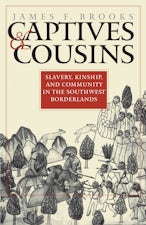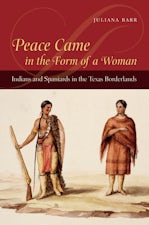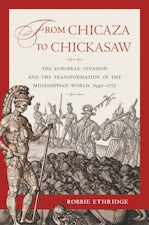Bonds of Alliance
Indigenous and Atlantic Slaveries in New France
By Brett Rushforth
424 pp., 6.125 x 9.25, 22 halftones, 4 maps, 3 tables, appends., notes, index
-
Paperback ISBN: 978-1-4696-1386-4
Published: February 2014 -
E-book EPUB ISBN: 978-0-8078-3817-4
Published: June 2013 -
E-book PDF ISBN: 979-8-8908-4263-3
Published: June 2013
Published by the Omohundro Institute of Early American History and Culture and the University of North Carolina Press
Buy this Book
- Paperback $45.00
- E-Book $19.99
For Professors:
Free E-Exam Copies
Published by the Omohundro Institute of Early American History and Culture and the University of North Carolina Press
Awards & distinctions
2013 Merle Curti Award in Social History, Organization of American Historians
2013 FEEGI Biennial Book Prize, Forum on European Expansion and Global Interaction
2013 Mary Alice and Philip Boucher Prize, French Colonial Historical Society
Finalist, 2013 Frederick Douglass Book Prize, Gilder Lehrman Center for the Study of Slavery, Resistance, and Abolition
2012-2013 Wylie Prize in French and Francophone Cultural Studies, Center for French and Francophone Studies at Duke University
Rather than telling a simple story of colonial domination and Native victimization, Rushforth argues that Indian slavery in New France emerged at the nexus of two very different forms of slavery: one indigenous to North America and the other rooted in the Atlantic world. The alliances that bound French and Natives together forced a century-long negotiation over the nature of slavery and its place in early American society. Neither fully Indian nor entirely French, slavery in New France drew upon and transformed indigenous and Atlantic cultures in complex and surprising ways.
Based on thousands of French and Algonquian-language manuscripts archived in Canada, France, the United States and the Caribbean, Bonds of Alliance bridges the divide between continental and Atlantic approaches to early American history. By discovering unexpected connections between distant peoples and places, Rushforth sheds new light on a wide range of subjects, including intercultural diplomacy, colonial law, gender and sexuality, and the history of race.
About the Author
Brett Rushforth is associate professor of history at the College of William and Mary.
For more information about Brett Rushforth, visit
the
Author
Page.
Reviews
"A brilliant, bold, and remarkable journey into the Indian slave system of New France."--American Historical Review
“Through his exhaustive research and attention to larger connections, Rushforth provides perhaps the most compelling account yet of the significance of Indian slavery to early American and Atlantic histories. . . . A must-read for historians of slavery, early American history, French colonial history, Atlantic history, and American Indian history alike.”--William and Mary Quarterly
“[A] sharp and superb study. . . . This book challenges us to seriously re-think slavery’s role, and the history of race, in French colonial projects in early Canada.”--Histoire sociale/Social History
“Rushforth [drew] on an impressive body of French- and Algonquian-language research and created a database that traces nearly two thousand Indian slaves. Such careful research enables Rushforth to recover the lives of individuals: their work, their social worlds, the ways violence—including sexual violence—framed their experiences of slavery.”--Journal of American History
"Compelling...powerfully argued...brilliant...a landmark of historical interpretation."--Julie Saville, University of Chicago
“A book that will spark debate, scholarship, and conversation for years to come. . . . A brilliant, bold, and remarkable journey into the Indian slave system of New France.”--American Historical Review




